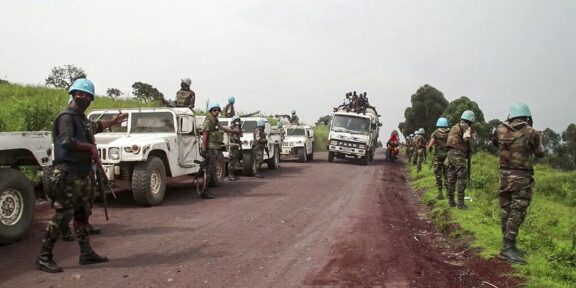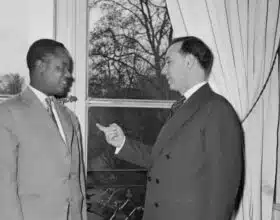With the supposed end of East-West rivalries, hopes were high that the straitjacket that had always anaesthetised the desire for emancipation of States that had hitherto been part of the Third World would dissolve. There seemed to be an infinite number of growth opportunities, as well as a growing number of alliances, for these States, which could now set about fulfilling their ambitions for sovereignty and prosperity, without fear of provoking the wrath of any guardianship.
However, multipolarity, triumphant in its early days, is now struggling with the frantic return of old hegemonic practices. In addition to military interventionism and the political and economic pressures of longstanding practice, there are now legal pressures. Unilateral revision or termination of partnership agreements, imposition of sanctions, arbitrary judgments, defamatory accusations – any pretext is good enough, especially the most fallacious, as long as it serves to assert the supposed rights of the most powerful.
Now that competition has resumed, it is more ruthless and destructive, and the monopolistic struggle is all the more turbulent as States that have reached the threshold of power are invited to join in. Indeed, the proliferation and itinerancy of false-flag wars waged by private military companies and armed terrorist groups do little to conceal the appetite of governments to come to the aid of their multinationals engaged in the scramble for natural resources or commercial outlets.
Thus, caught between the hammer of a combative bipolarity and the anvil of an aggressive unipolarity, many advocates of multipolarity are struggling to survive. Clearly, the current world disorder offers a magnificent window of opportunity to all sorts of adventurers who are thirstier for the comfortable financial rents promised to them than for the well-being of the peoples whose liberators they proclaim themselves to be.
In today’s changing global environment, Cameroon unfortunately finds itself at the heart of the Gulf of Guinea. A confluence of many land, sea and air trade routes, a vast depository of all kinds of natural resources, and therefore a point of convergence of just as many covetous interests.
And like other countries here and elsewhere that have fallen victim to asymmetric conflicts driven by false fundamentalist or separatist ideologies, Cameroon is facing plans to balkanise its administrative regions of the Far-North, North-West and South-West. Far from being the bearers of a puritanical or emancipatory social project, these seditious movements born outside our borders are in reality nothing more than the secular arms of former powers nostalgic for the days of their monopolistic hegemony. The situation is no different in many neighbouring, brotherly or friendly States, which are subject to the same asymmetrical pressures and hazards.
Let’s be clear. The sovereignist ambitions of our countries are not to everyone’s taste. These projects are so important in themselves that some leaders of the international community take it upon themselves to prevent them from being realised,even at the cost of military invasions if necessary, regardless of the human and material cost of such initiatives, the success of which is by no means guaranteed, at least as far as black Africa is concerned. In the meantime, and as if to prepare the ground, these powers will continue to create fault lines in the granite of our national cohesion, an objective pursued by armed terrorist groups as well as by capitalist and mercantilist circles, and in some cases even by ethno-tribalists.
If, through the will of a few, the spectre of colonisation resurfaces, it is important that we do not allow this painful reality to become an inexorable inevitability. It is up to us to defend our sovereignty.
We must remain vigilant. /-












